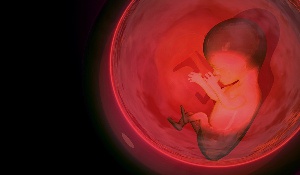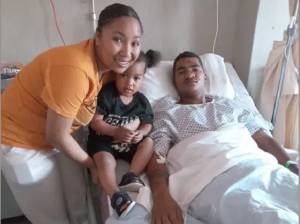- Home - News
- TWI News | TV
- Polls
- Year In Review
- News Archive
- Crime & Punishment
- Politics
- Regional
- Editorial
- Health
- Ghanaians Abroad
- Tabloid
- Africa
- Religion
- Election 2020
- Coronavirus
- News Videos | TV
- Photo Archives
- News Headlines
- Press Release
General News of Thursday, 5 September 2013
Source: Independentgh
‘Womb renting’ business booms in Ghana
Information reaching The Independent indicates that commercial sex workers (prostitutes) are now scrambling for opportunities to become surrogate mothers. Surrogacy is an arrangement in which a woman carries and delivers a child for another couple or person.
The “rent a womb” rush is said to be happening in some parts of the country with major towns in Accra battling for hotspots.
The scramble, according to information, is due to the lucrative nature of the ‘business’ which is gradually gaining grounds in Ghana.
The sex workers are said to be taking GH¢6,000 for services they render to couples who are in need of babies, while other sex workers, out of desperation, are taking GH¢3,000 for the similar service.
The sex workers are said to be renting their wombs to aspiring parents who cannot bear children due to biological mishaps.
In their new jobs, sex workers carry fertilised embryos of expectant couples and deliver babies for such couples.
The practice, which is quite new yet fast gaining grounds in Ghana, is popular in the western world where couples and bachelors from Europe and USA travel to Asian countries for medically designed babies.
Though current surrogacy statistics are not clear, the American Society for Reproductive Medicine puts the number of surrogate births per year in the hundreds.
Fertility agencies say their business is consistent despite the impressive price of the process—total fees can amount to $60,000, less than half of which usually goes to the surrogate mother. Surrogate mothers
There are two kinds of surrogate mothers: traditional and gestational surrogates.
A traditional surrogate is a woman who is artificially inseminated with the father's sperm. She then carries the baby and delivers it for the parents.
A traditional surrogate is the baby's biological mother. That's because it was her egg that was fertilised by the father's sperm. Donor sperm can also be used for a traditional surrogacy.
In vitro fertilisation (IVF) now makes it possible to harvest eggs from the mother, fertilise them with sperm from the father, and place the embryo into the uterus of a gestational surrogate. The surrogate then carries the baby until birth.
A gestational surrogate has no genetic ties to the child. That's because it wasn't her egg that was used. A gestational surrogate is called the "birth mother." The biological mother, though, is still the woman whose egg was fertilised.
Sports

I made more money from my New Edubiase deal than Asamoah Gyan’s move to Legon Cities – LilWin
Entertainment








